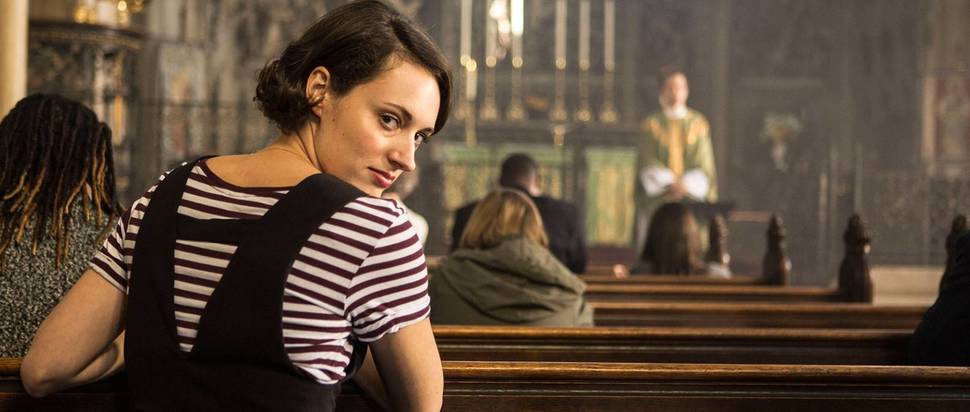Fleabag: Series Two
Phoebe Waller-Bridge’s anti-heroine is back with more angst and postmodern confessionalism. This series she has her eye on a cool priest, played with both smarm and charm by Andrew Scott
“Get. Your. Hands. Off. My. Miscarriage.” Oh, Fleabag, how we’ve missed you. And with that shriek in episode one, any concerns the show's devotees might have had coming into a second series of TV’s critical darling dissipated.
Fleabag’s unnamed anti-heroine (Phoebe Waller-Bridge, the show’s creator and writer) is back and she’s... actually kind of got it together. Or at least pretending she’s kind of got it together. Her café business is a success, she’s decided to stop sleeping around, instead spending time focusing on bettering herself. But, this is Fleabag and a grin can quickly become a grimace. In series two’s first episode – a dinner setpiece that's the show’s most theatrical setup yet – Fleabag’s dysfunctional family sit down to dinner with a priest (Andrew Scott). Waller-Bridge’s writing is whittled down to the bone as cutting put-downs and proclamations are spat across the table, ending in two bloody noses and a now well-established, fourth-wall breaking declaration from Waller-Bridge’s character to the viewer: “This is a love story.”
Where friendship was the glue that held series one of Fleabag together, faith seems to be at the heart of series two. As Waller-Bridge’s character fights her feelings for Scott’s sweary, cool priest (his ability to be both utterly charming and utterly smarmy is genius), she’s fighting a different kind of faith with her sister, Claire (Sian Clifford). The sisterly dynamic is simultaneously hilarious and gutting but, most importantly, it’s evolving on from series one. As with Waller-Bridge’s other television project, Killing Eve, in Fleabag there are no 'strong female characters.' Instead Waller-Bridge creates a space in which women get to be as pathetic, crude, nasty, gross, and hostile as they want – to themselves, to men, to other women. Fleabag’s redemptive angst and postmodern confessionalism is liberating. No wonder she has a thing for the priest. [Katie Goh]
